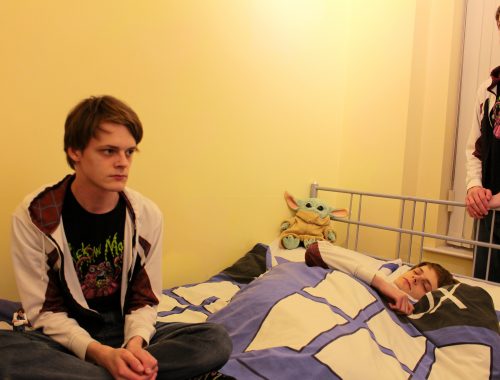Research Your Role!
Yet to begin my placement, I had a period to prepare myself to work as a Music and Sound Assistant for the company known as “Score Draw Music.” In short, the function of this company is to compose music for screen. During this time, the focus for me was to reflect on how I performed in the pre-placement interview, and what I struggled to answer. Aside from the interview, I also reflected on what new techniques I learnt on the course, “AEL3001 Work-Based Learning,” and how I was going to use them to excel on this placement.
Let us begin with some pessimism. Immediately after the interview concluded, I was less hopeful that I would get the placement position. This came down to the realisation that I had spent more time focusing on studying the company and its projects than on connecting myself to the company and how I would provide aid to upcoming projects. Whilst understanding the company’s works are important, it did not cover me for every part of the interview. When asked the question, “Are you familiar with any of our work,” I was able to give sufficient evidence of knowledge that I researched their company. However, when asked, “What skills would allow you to assist in different aspects of this placement, and what do you think you need to improve whilst on this placement,” I panicked, and my head went blank. It is known that in interview’s you need to talk about the skills you possess which I was prepared for. Unfortunately, relating them to said ‘different aspects’ in the workplace required me to have to improvise quickly as I couldn’t think of a specific task. After analysing this situation, I asked the interviewees, “What are some of the roles I will be taking on?” I was then given a description to which I was able to link a skill that I possess with each role. For example, the interviewees discussed that “the music industry is rapidly changing, so composing music for screen also needs to evolve with ‘the times.’” After receiving the relieving news that I was accepted onto the placement, I remembered the music industry discussion and made it imperative that I did further research to allow me to contribute when this scenario played out in the future.
The bulk of my research resided with the paper written by Juan Chattah titled Transforming Music Study from its Foundations: A Manifesto for Progressive Change in the Undergraduate Preparation of Music Majors. While the purpose of Chattah’s article was to educate readers on how to improve the music curriculum in teaching, there was valuable information relating to this placement included. Chattah refers to the subject of music as a “multicultural marketplace”, so it is essential that, “achieving an authentic transcultural understanding,” (Chattah, 2014) will spark interest amongst what I call “musical connoisseurs,” in other words, people who expertly follow the music industry and scout for emerging talent. Chattah follows this up by writing, “Politically correct acceptance of diverse cultures opens up to deep celebration and embrace when contact with these cultures informs, and is informed by, the emergent creative voice.” (Chattah, 2014) Because of this research, I now had insight into diversifying compositions which consequentially could relate to a variety of listeners. This is how I used a mistake in my interview and transformed it into a skill that I currently possess for this placement.
Linking the topic of interviews with another new technique I learnt was during a lecture this semester. In week 9 of this course, there was a lecture titled, “CV and Job Applications.” During this lecture, it was said that in an interview when you are asked questions, it is important to recite your CV and elaborate on it. This is because your CV should explain how you can cover all aspects of the job you are applying for. I was never able to link the two together until this lecture. This information will help me significantly to apply for future jobs. Another point in this lecture that I was educated on was that on average, an employer will take up to 17 seconds to look at your CV. The employer only needs to highlight key skills that you possess for the job. The educational advice given allowed me to redraft my CV, with a new technique of concision. Additionally, I drafted multiple practice CVs to different job opportunities to prepare for applying for a future career in composition for screen. Having multiple CVs in my possession is due to another key point I learnt which was to read a job description carefully and base your CV on the specific set of attributes the employer is looking for.
After a few months of preparation time, I believe I have sufficiently researched and acquired new techniques that will allow me to undertake this placement. However, being complacent is out of the question as I still have so much to learn and improve on during my time spent at Score Draw Music.
BIBLIOGRAPHY:
Chattah, J., 2014. Transforming Music Study from its Foundations: A Manifesto for Progressive Change in the Undergraduate Preparation of Music Majors. [online] Myweb.fsu.edu. Available at: https://myweb.fsu.edu/nrogers/Pedagogy_I/Assignments/CMS_Manifesto.pdf [Accessed 3 December 2021].
Blog post 1
You May Also Like

Roles Reversed
26 November 2021
Facing Avoidance
26 November 2021

